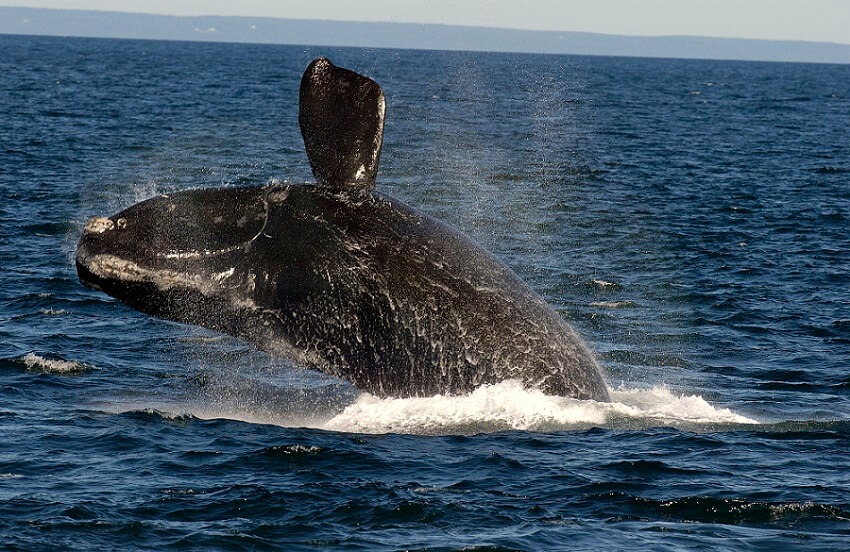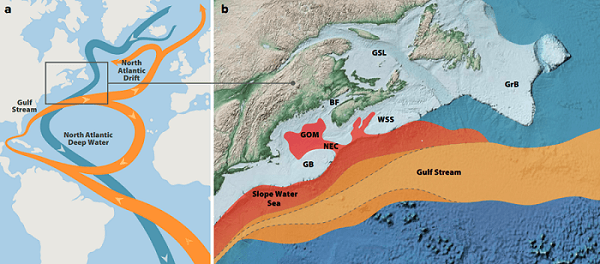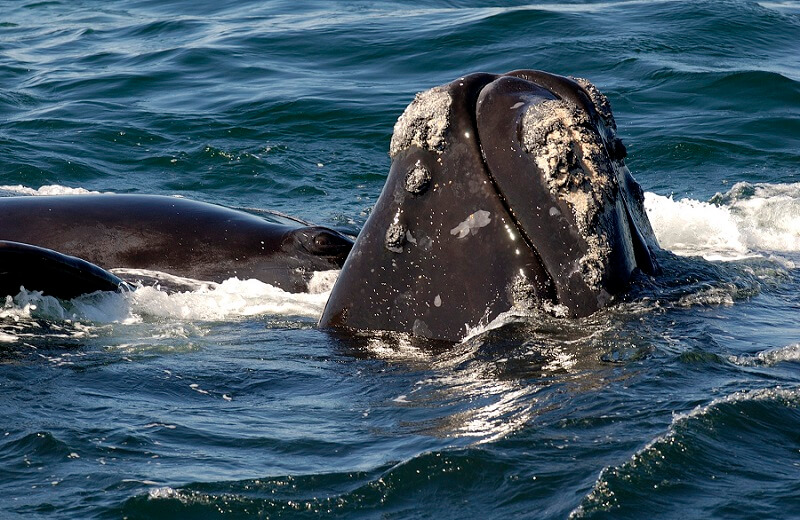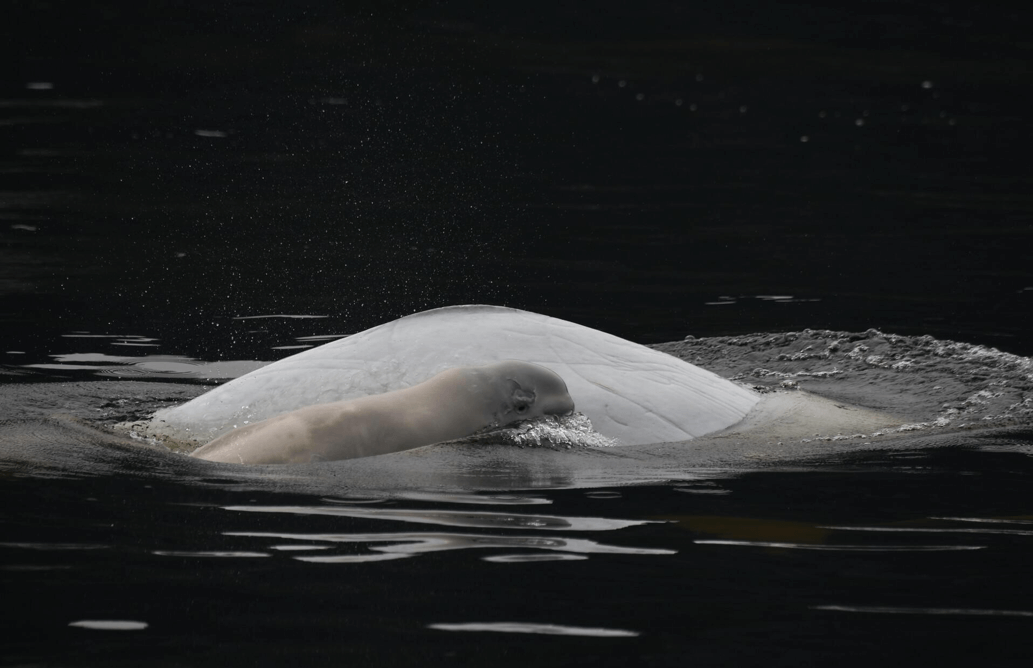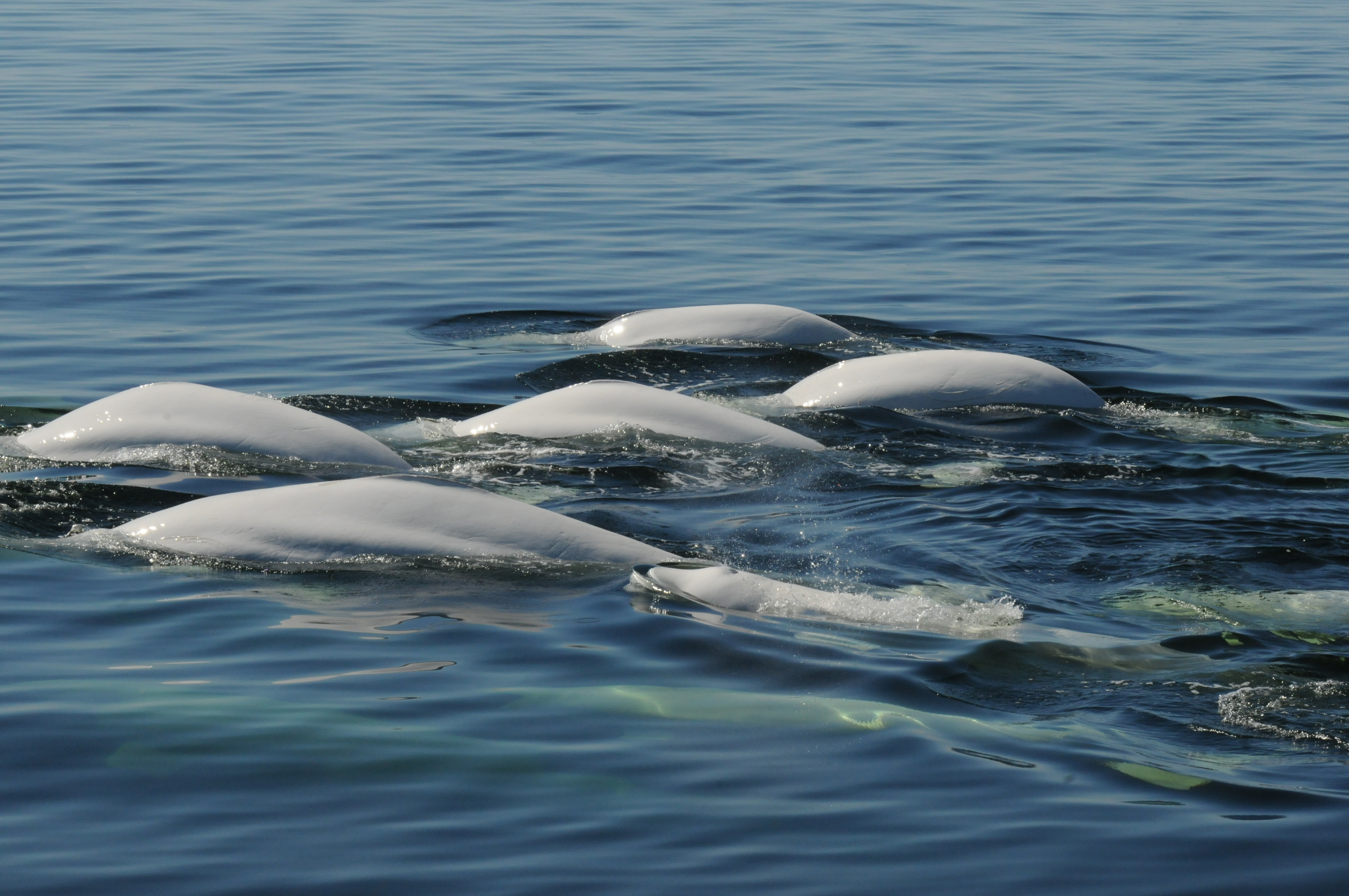The North Atlantic right whale population is down to approximately 350 individuals and is critically endangered. The recovery of this species faces many pitfalls. Entanglements in fishing gear and collisions with vessels are major issues that get a great deal of press coverage. A new study led by Erin L. Meyer-Gutbrod and her team (University of South Carolina) shows that climate change is likely having a significant impact on the survival of these whales by affecting the species’ favourite prey: the copepod Calanus finmarchicus.
Disruption of ocean currents
Climate change is causing freshwater glaciers at the planet’s poles to melt. As a result, the salinity and density of ocean water are diminished, which prevents cold currents from flowing as deeply as they did before. This reduces the velocity of Atlantic currents, including the Gulf Stream. Its course has deviated from the historical norm, and its warm waters are entering into new areas such as the deep waters of the Scotian Shelf. This disturbance subsequently causes these regions to grow warmer, creating unfavourable conditions for C. finmarchicus, which is only able to thrive in cold water. The fact that population levels of this small copepod remain abnormally low may be having a significant impact on these black giants, such as causing them to starve or driving them to new territories in search of food.
In search of food
According to the study conducted by Meyer-Gutbrod and her colleagues, the decline in C. finmarchicus stocks has been pushing North Atlantic right whales out of their traditional summer feeding grounds since 2010. These include the Gulf of Maine and the Bay of Fundy, both of which are part of the Scotian Shelf. The whales have abandoned these regions in favour of other sectors, notably the Gulf of St. Lawrence.
This shift in distribution coincides with a drastic drop in the annual number of births. Reproduction, calving and care for newborns are particularly energy-intensive activities. If North Atlantic right whales do not have access to adequate food resources, they will not be able to reproduce successfully. Researchers therefore speculate that these new feeding grounds do not meet the North Atlantic right whale’s nutritional needs. Low birth rates are currently posing a growing risk to the survival of the species, which is now critically endangered.
A challenge for conservation
The changing behaviour of North Atlantic right whales is creating new hurdles for conservation efforts. Not only did the whales have to abandon their traditional feeding grounds, but their recent presence in the Gulf of St. Lawrence is causing major conflicts with the fishing industry and maritime traffic. Although collisions with vessels and entanglements in fishing gear have been known for decades to be significant causes of mortality in North Atlantic right whales, the measures and regulations put in place on the east coasts of Canada and the U.S. were not in effect in the Gulf of St. Lawrence when right whales first appeared there. A protection program was not put in place by the Canadian government until the summer of 2017, when a record number of mortalities was observed.
According to the authors of the study, current monitoring and protection projects for the species have greatly improved forecasts of the animals’ movements, in addition to providing much more detailed tracking than was possible before. However, it is difficult to predict whether the right whales’ new summer habitat and the emergency protection measures implemented there will be sufficient to prevent the extinction of these climate refugees.


